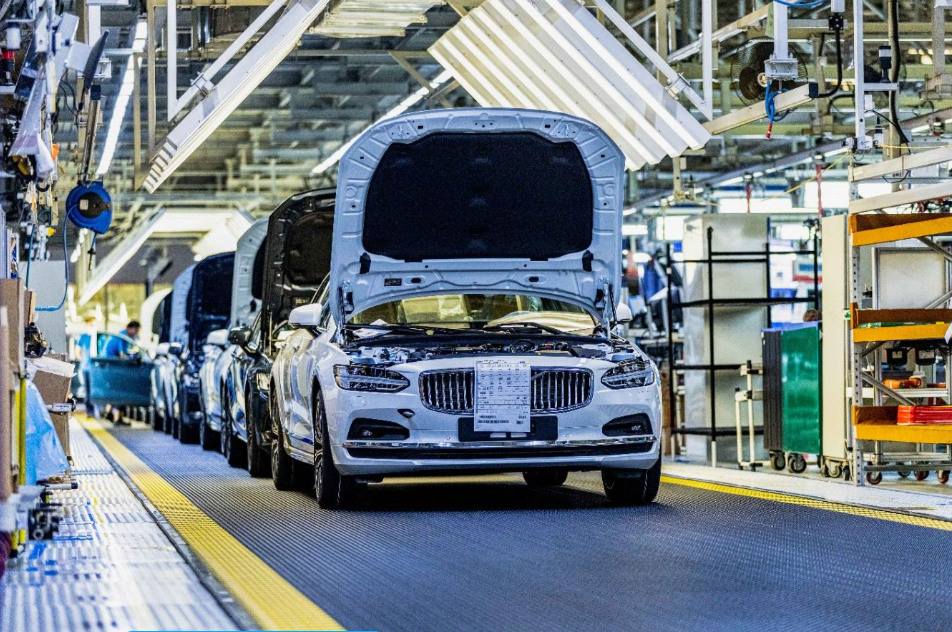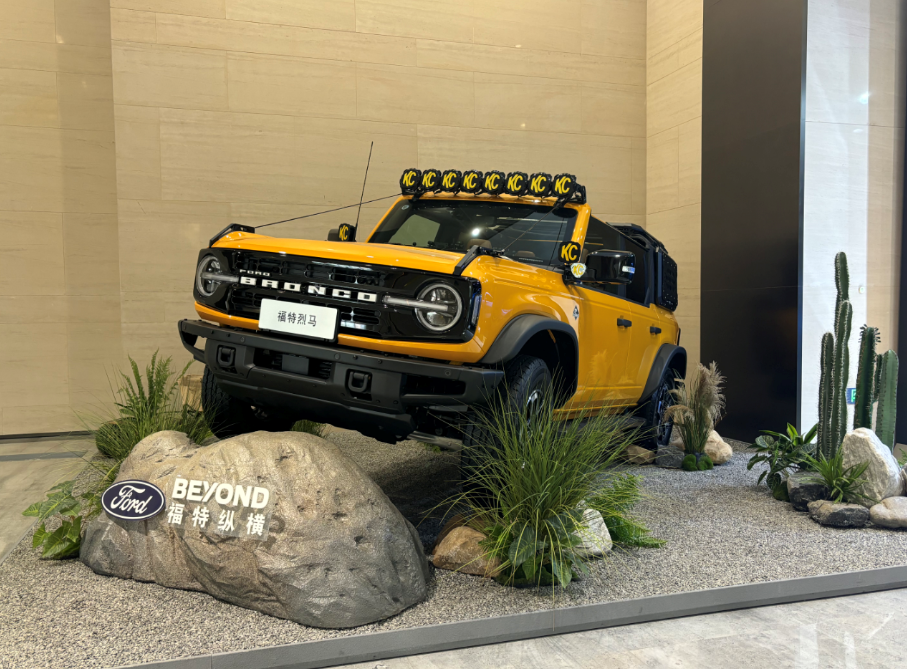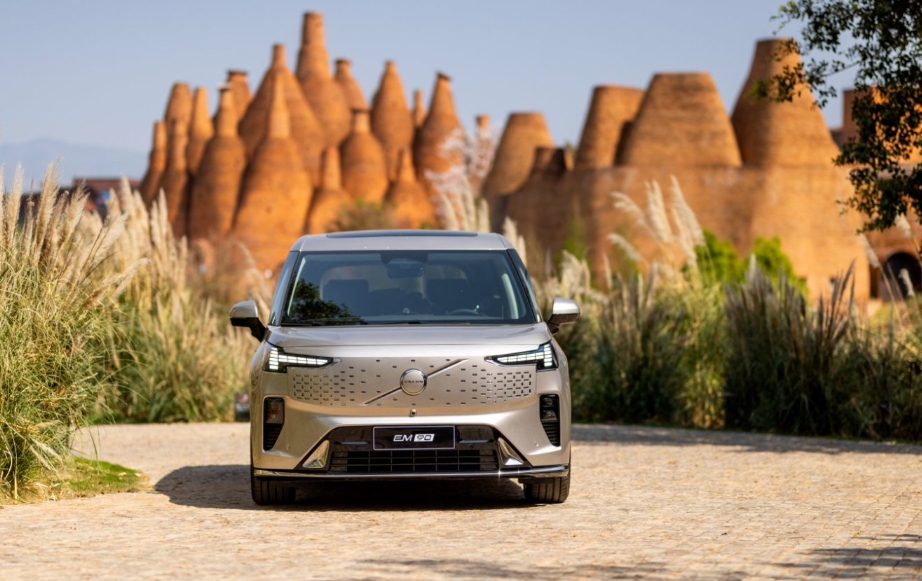Automotive Industry: Rising Sales, Declining Profits?
![]() 01/22 2025
01/22 2025
![]() 691
691
Rediscovering Value in Traditional Enterprises
On January 13, the China Association of Automobile Manufacturers unveiled the latest data, revealing that China's automobile production and sales surpassed 31 million units in 2024, marking a new record high.
In 2024, the rapid surge in the new energy vehicle market spurred a remarkable turnaround for Chinese auto brands. For several consecutive months, the market penetration rate of new energy vehicles exceeded 50%, officially overtaking internal combustion engine vehicles.
However, paradoxically, despite the escalating sales figures, the profit margins of the automotive industry continue to dwindle. According to the China Passenger Car Association, the industry's profits from January to November 2024 fell by 7.3% year-on-year, with a profit margin of 4.4%. This remains relatively low compared to the average profit margin of 6.1% for downstream industrial enterprises. Notably, the profits of the automotive industry in November 2024 plummeted by 35% year-on-year, with a profit margin of merely 3.3%.
Amidst this backdrop, many traditional automakers' commitment to fully embracing pure electric vehicles is wavering. Businesses aim to achieve profitability, and currently, only Tesla is able to do so through pure electric models.
Wu Shengbo, President and CEO of Ford China, candidly stated in an interview with China News Weekly that for Ford, following the trend to compete in pure electric models and smaller vehicles with a broader audience poses significant challenges.

Image Source: Volvo
"Only with quality does quantity have value," said Yuan Xiaolin, Senior Vice President of Volvo Cars Global and President and CEO of Volvo Cars Asia Pacific, in an interview with China News Weekly. "The automotive industry is a long-cycle, high-investment industry, and cars themselves are durable consumer goods. Performance should be viewed over the long term."
Breaking Out of the "Convoluted" Cycle
In 2024, the "convoluted" nature of the automotive market caught practitioners by surprise.
The recently held 2024 Central Economic Work Conference explicitly mentioned the need to rectify internal competition within the industry to avoid resource wastage, inefficiency, and market disorder stemming from excessive internal competition.
Indeed, within the automotive industry, there are instances of low-price competition to secure market share.
This year, the scale of price wars reached an all-time high. Cui Dongshu, Secretary-General of the China Passenger Car Association, noted that in 2024, the number of passenger car models with price reductions throughout the year amounted to 227, significantly surpassing the 148 models in 2023 and 95 models in 2022.
While low-price competition may seem beneficial to consumers, it actually harbors significant risks. Consequently, profits across the industry have plummeted sharply, with many enterprises even incurring losses. Some unscrupulous practices aimed at cutting corners to reduce costs have severely impacted consumer rights.
"Healthy competition is based on survival of the fittest, whereas 'convolution' only leads to the expulsion of good money by bad," Yuan Xiaolin bluntly stated. "Convolution" pulls everyone into a downward spiral of vicious competition, making it increasingly unsustainable.
"In the era of oil vehicles, no matter which brand led, it did not preclude others from surviving," Wu Shengbo also said. "We now witness some brands treating business as a life-or-death struggle. It's not just that they won't leave you anything to eat; they will consume you entirely. It's a completely different business philosophy where the big fish eat the small fish."
Lu Xiao, General Manager of SAIC-GM, added: "In 2024, SAIC-GM experienced the most challenging year in the company's development history. There is no turning back. At the same time, the company is resolute in fighting. In an unfavorable situation, if we don't fight, we will have regrets."
"Surviving with quality and resilience is the foundation for 'moving forward,'" said Yuan Xiaolin. "'Moving forward' implies not only surviving oneself but also enabling others to survive. Whether dealers can profit and whether they promote cooperation with suppliers from a win-win perspective are naturally valuable, especially during difficult times."
"Volvo Cars believes that in an environment of rapid transformation and fierce competition, enterprises should shoulder more social responsibilities beyond performance," Yuan Xiaolin continued. "The more influential an enterprise is, the more it needs to bring positive and upward forces to society. It must be genuine rather than false, ethical rather than bottomless, positive rather than hostile, honest rather than deceptive, objective rather than misleading, civilized rather than barbaric, and value-creating rather than value-destroying."
Repositioning Precisely
According to Wu Shengbo, before joining Ford, he had witnessed tremendous changes in at least two industries. "One was the transition from traditional lighting to LED, where thousands of companies suddenly emerged to manufacture LEDs, but now most of them have collapsed. The second was the home appliance industry, which also underwent a period of rampant expansion and widespread losses, and now the top player is only Midea. The automotive industry will undoubtedly undergo this development process as well."

Ford Bronco (Photographer/Liu Shanshan)
Wu Shengbo emphasized, "Following the trend is always a major taboo in business. Finding a path that suits oneself is the only sustainable way."
Amid the complex market environment, Ford began to focus on large SUVs, hard-core off-road vehicles, and pickup trucks, where it excels. It turned losses into profits in the third quarter of 2023, achieved full-year profits in the domestic market in 2024, and also made profits in its export business. In Wu Shengbo's view, Ford's self-rescue strategy is to avoid becoming a "small fish" in a big pond and instead become a "big fish" in a small pond.
"There is no best technology in the world, only the most suitable technology," Wu Shengbo believes. In the current competition, one should not blindly follow others. "If medium and large SUVs are only available in pure electric versions, they will undoubtedly 'die' miserably because the price cannot compensate for the cost of batteries," Wu Shengbo explained. "If Ford focuses on the path of 'Fun Nature, Go Wild,' it must pursue long-range capabilities, which are definitely not pure electric. They must be extended-range, plug-in hybrid, or oil-hybrid, some form of hybrid."
In Yuan Xiaolin's perspective, the force driving enterprises to continuously "grow upwards" is the brand. "A brand represents an enterprise's choices and trade-offs. Combining ten thousand things into one thing and doing that one thing thoroughly gives innovation and development a soul."
"For Volvo Cars, this focus is 'safety.' 'Safety' permeates our selection and application of every new technology and will become the core differentiator that guides us through the cycle," Yuan Xiaolin said.
Long-term Layout
"The changes in the Chinese market have surpassed the expectations of many domestic enterprises and even more so those of multinational enterprises. The reason why multinational enterprises have not kept pace with these changes lies in their outdated models from the past," Zhang Yongwei, Vice Chairman and Secretary-General of the China Electric Vehicle Hundred People Forum, bluntly stated at the recently held China Electric Vehicle Hundred People Forum (2025) Media Communication Meeting. In terms of electrification, everyone will eventually converge.
Today, the industrial chain advantages forged by China's new energy vehicles have become valuable resources cherished by foreign investors. After electrification, the industry will also shift towards intelligent competition. In this protracted competition, the winner remains uncertain.

Image Source: Volvo
Yuan Xiaolin noted, "Although we are ensnared in it, there are always choices to be made. Economic laws are not far; they are in the choices made at every crossroads right now." According to the plan, by 2025, Volvo Cars will have seven highly competitive models on the market, also known as the "Seven Swordsmen Descending on Tianshan Mountain"—fuel, plug-in hybrid, and pure electric vehicles, comprehensively covering market demand. Whether it's intelligent cabins or intelligent driving, they strive to present leading or unique software and hardware capabilities in their respective classes. As Yuan Xiaolin said, "What often traps us is not the difficulties in front of us but the high walls in our hearts."
In Wu Shengbo's view, although the explosive growth of China's new energy market has emerged in the past two years, support for the industrial chain began a decade ago. "This is a process of accumulating strength and then releasing it," he said. Therefore, Ford's approach in the field of new energy vehicles is to collaborate with the entire industrial chain. "The reason why China's intelligent and electric vehicles have developed well is not because one OEM has excelled but because the entire industrial chain is outstanding."
Wu Shengbo believes that sustainable development in the field of new energy is achieved through cooperation with the entire industrial chain. "With our own way of thinking, we need to build the 'bones' ourselves, but the 'meat' on top of the 'bones' can be borrowed. It can be from other OEMs or other suppliers. Therefore, from this perspective, cooperation in new energy cannot be simply misunderstood as collaborating with existing joint venture partners but should be more broadly understood as collaborating with the entire industrial chain," he explained.
Wu Shengbo provided an example, such as in the area of electronic and electrical architecture, Ford must have its own ideas. The electronic and electrical architecture is not only applicable in China but will also be utilized in the future in the United States and worldwide. "The joint venture company has already adopted it, and it works well. We have experience, so I can use the same thing. But if for various reasons, certain suppliers cannot be used in overseas markets, I will choose to collaborate with other manufacturers," he said.
"In the era of new energy vehicles, the core factor that can further differentiate internally and externally is not electrification but intelligence," Zhang Yongwei said. "In another three to five years, after everyone has synchronously resolved the issue of electrification and leveled the playing field, the key to determining who is the primary player and who is the auxiliary player will hinge on who can create more intelligent products. This is crucial." In the marathon-like long-term competition of car manufacturing, the late-mover strength of multinational automakers cannot be underestimated, while Chinese auto brands should seize the first-mover advantage in the electrification transformation to achieve higher-quality development.








